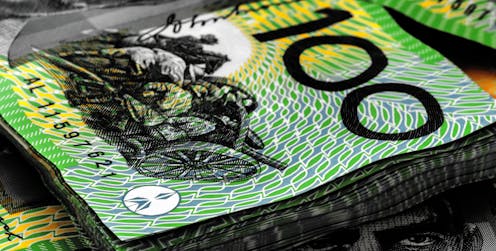The Pandora Papers show the line between tax avoidance and tax evasion has become so blurred we need to act against both
- Written by Alex Simpson, Senior Lecturer in Criminology, Macquarie University

What’s the difference between tax avoidance and tax evasion?
The difference used to matter. Evasion was illegal. It meant not paying tax that was due. Avoidance meant arranging your affairs so tax wasn’t due.
Australian media mogul Kerry Packer used the distinction as a complete defence when he told a parliamentary committee[1] in 1991 he was
not evading tax in any way, shape or form. Of course, I am minimising my tax. Anybody in this country who does not minimise his tax wants his head read.
The Pandora Papers — the biggest-ever leak of records showing how the rich and powerful use the financial system to maximise their wealth — shows the distinction has lost its meaning.
The dump of almost 12 million documents[2] lays bare the ways in which 35 current or former leaders and 300 high-level public officials in more than 90 countries have used offshore companies and accounts to protect their wealth.
Only in some of the cases could their activities be categorically declared illegal.
Tax havens are legal
Here’s how tax havens are used. Trusts and companies are set up in places with low tax rates and secrecy laws such as the Bahamas, Cayman Islands, Hong Kong, Singapore, Switzerland, the US state of Delaware and the Republic or Ireland.
If, for example, a wealthy celebrity or a politician wants to buy a new yacht or a luxury villa but doesn’t want to pay tax or stamp duty or expose their wealth to scrutiny they can get their lawyer or accountant to do it through such a trust.
Read more: The Pandora Papers: why does South Dakota feature so heavily?[3]
For somewhere between US$2,000 and US$20,000[4] to set up the trust, the name of the real owner or beneficiary can be hidden.
It isn’t illegal for the celebrity or a politician to move their money (so long as it is theirs to begin with). Assets within the trust are subject to local tax laws (sometimes zero tax) and local secrecy laws (sometimes complete secrecy).
Legal, but used by criminals
These legal means of using complex networks of secret entities to move around money are the same as those used by criminals.
Alongside the likes of India’s cricket superstar Sachin Tendulkar, Colombian pop singer Shakira and Elton John in the Panama Papers are Italian crime boss Raffaele Amato[5], serving a 20-year jail sentence for weapons and drugs trafficking, and the deceased British art dealer Douglas Latchford[6], suspected of smuggling looted treasures and money laundering.
It’s far from clear these arrangements should be legal
The big question raised by the Pandora Papers is why any hiding of private wealth from tax authorities ought to be legal.
The International Monetary Fund estimated in 2019 that tax haven deprived governments globally of US$500 billion to US$600 billion[7] per year.
To put that into perspective, the estimated cost of vaccinating the world against COVID-19 is US$50-70 billion[8].
Some of what’s been uncovered in the Pandora Papers is illegal (“evasion”) but much might not be (“avoidance”, aided by anonimity).
The effect is the same. Dollars that ought to have been paid in tax are withheld and used for the benefit of people who aren’t keen to admit to owning them.
Over the weekend the Organisation for Economic Co-operation and Development, now led by Australian Mathias Cormann, brokered a deal under which 136 countries agreed to charge multinational corporations a tax rate of at least 15%[9], making tax havens harder to find.
Ireland, previously used as tax haven, signed up.
The nations concerned did this because because, even where legal, the use of tax havens costs billions.
We’ll soon have to consider removing a distinction in law that vanished in practice some time ago.
References
- ^ parliamentary committee (youtu.be)
- ^ 12 million documents (www.icij.org)
- ^ The Pandora Papers: why does South Dakota feature so heavily? (theconversation.com)
- ^ US$2,000 and US$20,000 (www.icij.org)
- ^ Raffaele Amato (www.icij.org)
- ^ Douglas Latchford (www.theguardian.com)
- ^ US$500 billion to US$600 billion (www.imf.org)
- ^ US$50-70 billion (www.nytimes.com)
- ^ 15% (www.oecd.org)
Authors: Alex Simpson, Senior Lecturer in Criminology, Macquarie University







